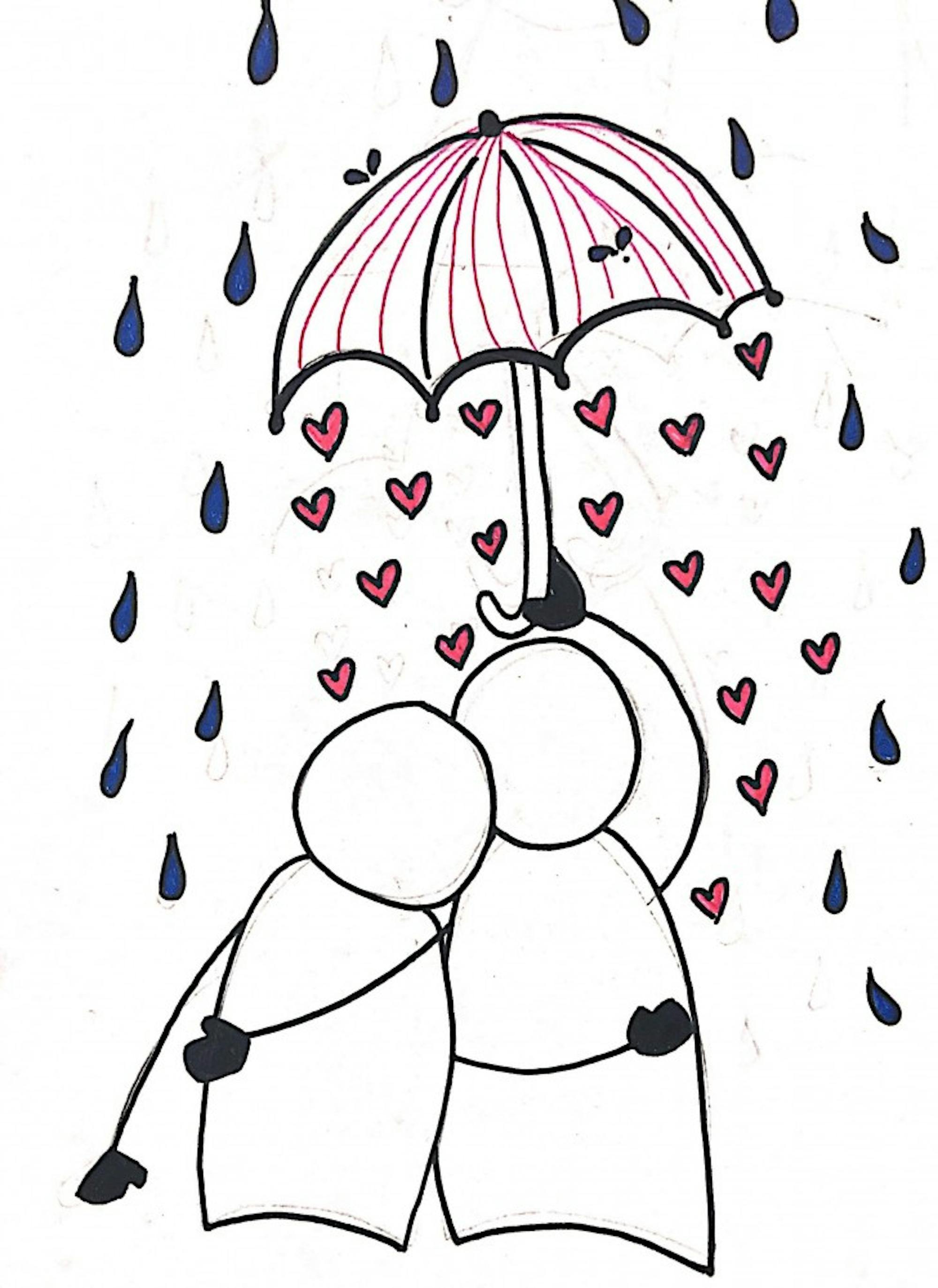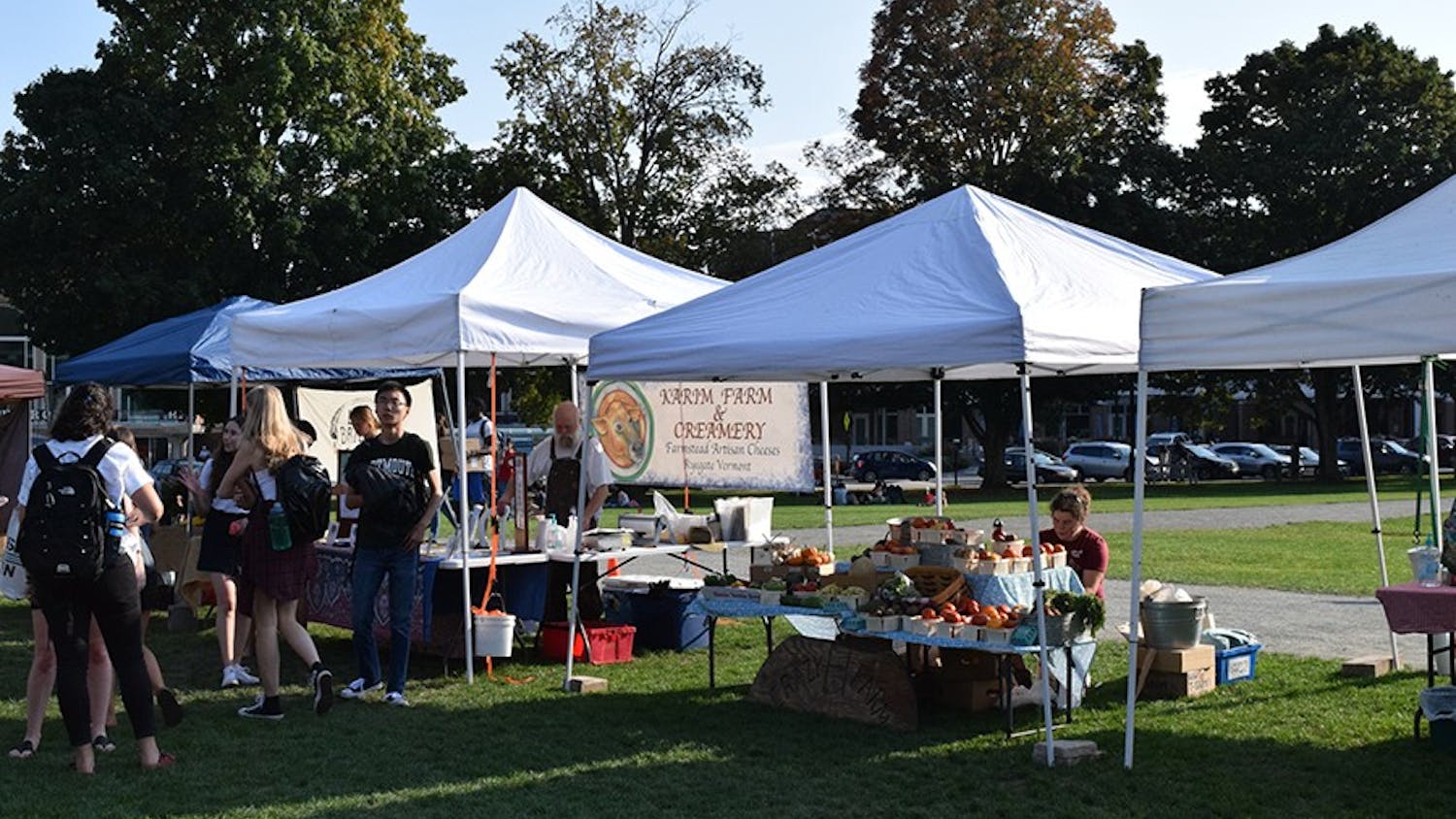Valentine’s Day is officially upon us. As the one day entirely dedicated to love, the 14th of February is highly anticipated around the world, and Dartmouth’s campus is no exception. Conveniently situated in the lull following midterm stress, Valentine’s Day has been celebrated in various ways around campus by single students and couples alike. As the means of confessing feelings have evolved from messages in the newspaper to serenades by the marching band, students’ perceptions and celebrations of the holiday have evolved over time as well. Nonetheless, Valentine’s Day has been and always will be an exciting time on campus.
To this day, the origins of Valentine’s Day are still unclear. Legend has it that the holiday roots from the ancient Roman fertility ritual known as Lupercalia. Each Feb. 15 began with a sacrifice of a dog and a goat to Lupercus, a fertility god, by the Luperci, who were members of one of the oldest priesthood in Rome. Two of the Luperci would approach the sacrificial altar and have their foreheads touched by a bloody knife. Their foreheads were then wiped off by wool dipped in milk as a purification step, and the men were obliged to laugh during the process. When the ritual was over, naked women were hit by hides of the sacrificed animals, thus deeming them fertile.
As the Roman Empire became more Christian, however, the raunchy holiday was transformed into one honoring St. Valentine. He was a priest during the reign of Emperor Claudius II, who banned all marriages and engagements in Rome in order to get more men to join his military leagues. Valentine performed marriages in secret during the ban, but was soon executed for his actions on the date of Feb. 14.
At Dartmouth, it is safe to say that celebrations of Valentine’s Day are a little less extreme. Now, teddy bears and chocolate boxes are the new norms, with a nice dinner thrown in the mix to really woo that special someone. Native Americans at Dartmouth is celebrating the holiday through a celebration called “Secret NADmirers.” Steven Jump ’21, a member of NAD, is excited to exchange gifts with other members this year.
“It’s open to anybody that wanted to participate — think a Secret Santa but for Valentine’s Day,” Jump said. “I think this simple activity is a good way to really get to know more about people that you might not know already, with small things like their favorite candy. It’s just a nice way to celebrate the holiday if you don’t have a significant other.”
Beyond celebrating love, various groups on campus are holding Valentine’s Day-themed events and fundraisers this year to promote a greater cause. She’s the First is hand delivering chocolate roses, and all proceeds go towards girls’ education in Ethiopia. Dartmouth Quest for Socioeconomic Engagement is selling roses and teddy bears to support the Ferst Foundation for Childhood Literacy. This past Sunday, trumpets and cymbals were heard across campus as the Dartmouth College Marching Band delivered “Bandy Grams” to students, a fundraising effort the band initiated last February. Alexandre Hamel ’21 was in charge of Bandy Grams this year.
“Bandy Grams are like candy grams, but with music,” Hamel said. “The process of sending one is really simple: fill out a form, pick a location and we’ll play the song for the person. We have a list of fun songs to choose from, like ‘My Girl’ and ‘Build Me Up Buttercup.’”
At a price, Bandy Grams were a major success this year, and many students had to be put on a waitlist as the 12 slots quickly filled up. Students could hear Bandy Grams in action throughout campus, from Novack to the Hopkins for the Arts.
For many single students, though, Valentine’s Day is usually just an overlooked time in the midst of a busy quarter, especially because dating is seemingly uncommon at Dartmouth. Today, there is a plethora of dating apps that students can utilize to meet new people and potentially solve this problem, but what about the period before the creation of Tinder and Bumble? Taking a look back in time reveals how one student decided to take matters into her own hands in order to promote love on campus.
April Whitescarver ’96 offered a matchmaking service every February during her time as a student, which began simply by getting her friends together with the people that they were interested in. This soon grew to a service that matched over 50 pairs of students together. In a Feb. 14, 1997 article published in The Dartmouth, Whitescarver said that a healthier “dating environment” was needed and that the matchmaking service was “an interesting start.”
For other students, the month of February is not so much a time to obsess over affection and finding love; rather, it’s perceived as a crucial point of one’s Dartmouth career: marking to the middle of winter term.
Jason Greer ’90 reflected upon his idea in “Personal reflections on Valentine’s Day” in the February 1989 issue of The Dartmouth.
“First of all, I have time to spend reflecting, since I am right between rounds of midterms,” he wrote. “But both the term and the school year are a little more than halfway over, so it’s a good time to see where I’m going academically and where I’ve been.
Even today, these thoughts are prevalent among various students of all years. Ashley Song ’21 shared similar sentiments as Greer.
“Reflecting on my time at Dartmouth so far, winter term has given me a new perspective on what it’s like being an actual student here,” Song said. “I’m figuring out where I stand as a person now and where I want to be in the future. I think I’m over that initial freshman phase of just trying to figure college out.”
Whether you’re celebrating today as Valentine’s Day or “Singles Awareness Day,” sending chocolates to your significant other or just treating yourself, going out to a romantic dinner or cramming for next week’s midterm, perhaps Greer said it best 29 years ago.
“The purpose of this day is not to pay homage to events or people of the past, but to commemorate, to celebrate events or situations of the present,” he wrote.




